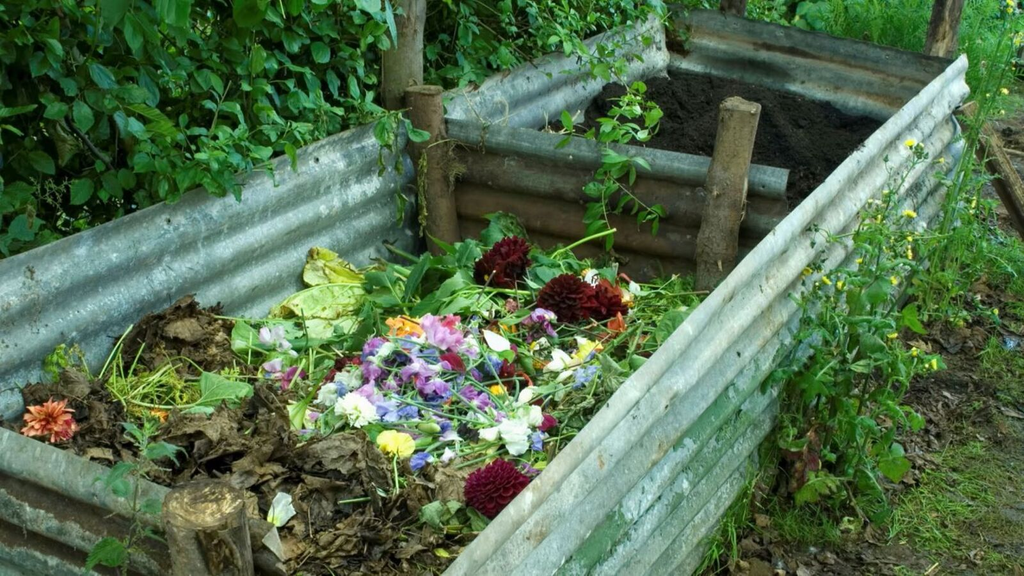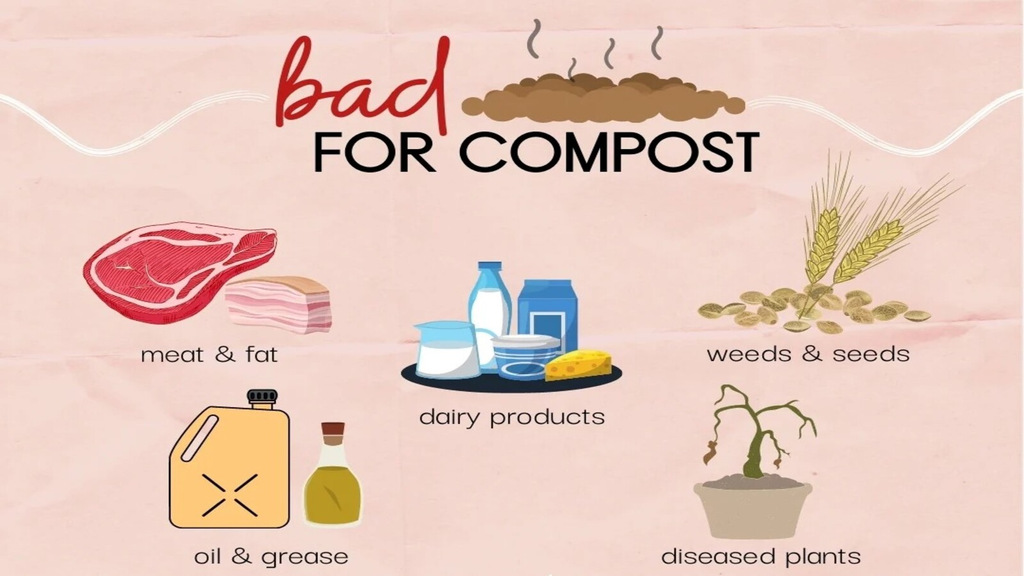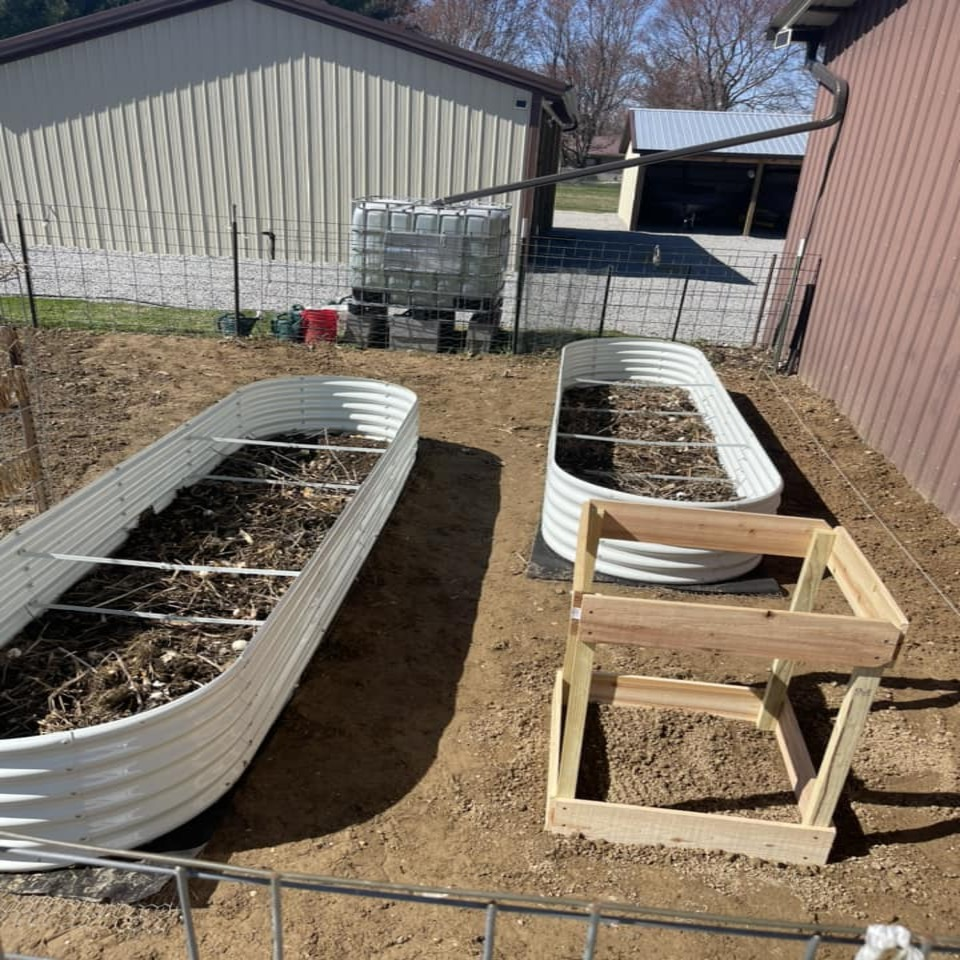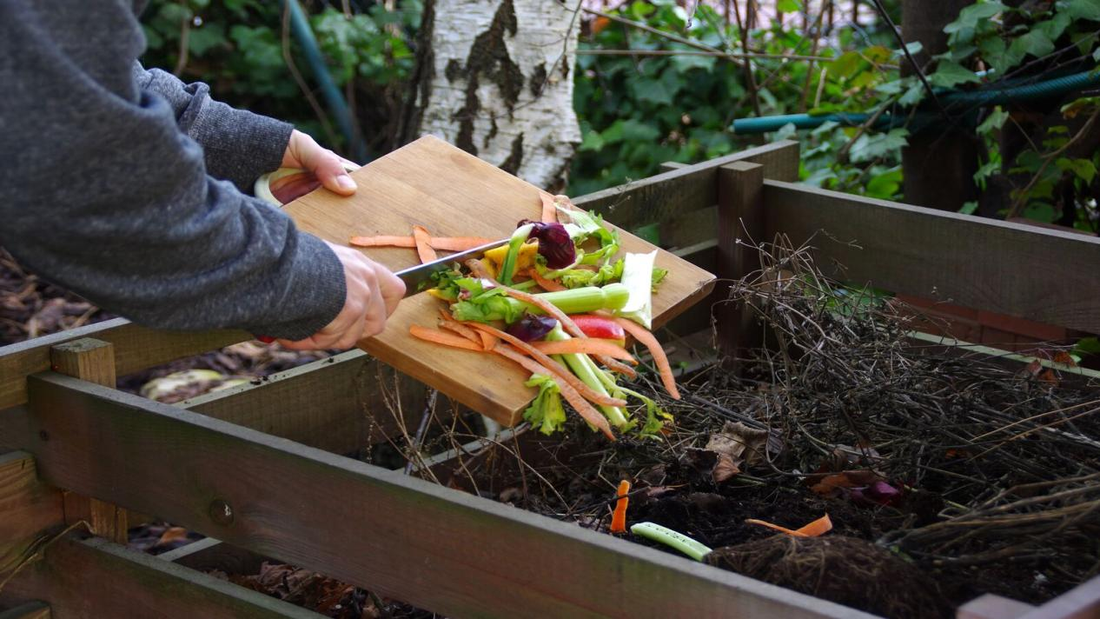Composting is the process of breaking down organic materials to create a nutrient-rich soil amendment. It is a natural way to recycle kitchen and garden waste, and it's an essential practice for any gardener looking to improve their soil quality. Composting in a raised bed offers several advantages, including better moisture retention and easier access for turning and harvesting the compost. It is a fantastic way to recycle organic waste and create nutrient-rich soil for your plants. By utilizing a raised garden bed for composting, you can easily manage the process and improve the overall health of your garden.
The Nature of Composting
Composting is the controlled, aerobic (oxygen-required) biological decomposition of organic materials by microorganisms. Organic (carbon-based) materials include grass clippings, leaves, yard and tree trimmings, food scraps, crop residues, animal manure, and biosolids. Compost is a dark, crumbly, earthy-smelling, biologically-stable soil amendment produced by the aerobic decomposition of organic materials. Composting can take place in a variety of settings, including traditional compost bins, tumblers, and raised beds.

What Good Can Composting Bring?
- Reduces methane emissions from landfills to protect the climate.
- Reduces waste.
- Recycles organic materials into a valuable soil amendment – compost.
- Recovers organic materials and keeps them local.
- Creates green jobs.
- Extends municipal landfill life by diverting organic materials and saving space in landfills.
- Reduces solid waste management costs because food scraps are one of the largest and heaviest portions of the waste stream, making their recovery increasingly cost-effective compared to disposal.
These Things Can Be Composted
In general, almost all kitchen scraps are fair game, except for meat, dairy, and cooked foods. The more natural materials used, such as veggie and fruit scraps, the better.
Many organic materials can be composted, including kitchen scraps, yard waste, and other biodegradable materials. They are categorized as either green or brown, where green scraps include items like fruit and veggies, egg shells, coffee grounds and filters, and stale bread, and brown scraps refer to fallen leaves, dried grass clippings, straw and hay, yard trimmings, sawdust, wood chips, used paper towels and napkins (untouched by cleaning products or greases), and more.
These materials provide the carbon and nitrogen necessary for the composting process to occur.
These Things Shouldn't Be Composted
Of course, composting mistakes will happen and there are some items that should never make it into your compost bin. Avoid any types of plastic or styrofoam from ending up in your mixture, as these materials aren't biodegradable and won't break down properly like your other compost ingredients. There are some items that should not be added to a compost pile. These include:
- Meat and dairy products: These can attract pests and create unpleasant odors.
- Oily or greasy foods: These can slow down the composting process and create an unpleasant smell.
- Diseased plants: These can spread diseases to other plants when the compost is used in the garden.
- Pet waste: Pet waste can contain harmful pathogens and should not be used in compost that will be used on edible crops.
Plants That Should Not Be Composted
Just like you should never toss chemical-soaked paper towels into your compost bin, plants treated with pesticides and/or preservatives should be left out, too. Incorporating them can taint your entire bin. There are also specific plants that should not be added to a compost pile. These include:
- Invasive weeds: Weeds with seeds or rhizomes can survive the composting process and spread in the garden.
- Poisonous plants: Plants such as poison ivy or oak should not be composted, as their oils can persist in the finished compost.

Start composting in a Raised Garden Bed
To start composting in a raised bed, begin by choosing a suitable location for your compost pile. Placing it in an area with direct sunlight is best, as the compost mixture will be activated by heat. Make sure you have a shovel or another type of mixing device, as occasionally mixing your compost will help expedite the decomposition process.
Next, follow the steps below to finish the composting process:
Step 1: Layer Organic Materials
Begin by layering organic materials in your raised garden bed. This can include kitchen scraps, yard waste, leaves, grass clippings, and other organic matter. Aim for a balanced mix of green materials (nitrogen-rich) and brown materials (carbon-rich) to facilitate decomposition.
Step 2: Add Compost Starter
To kickstart the decomposition process, consider adding a compost starter or activator to introduce beneficial microorganisms to the pile. This can help speed up the breakdown of organic materials and create compost more quickly.
Step 3: Turn and Water the Compost
Regularly turning the compost with a pitchfork or shovel is essential to aerate the pile and promote decomposition. Additionally, ensure that the compost remains moist but not waterlogged by watering it as needed. Proper aeration and moisture levels are critical for successful composting.
Step 4: Watching out the Compost Pile
Keep an eye on the temperature, moisture levels, and overall decomposition progress of the compost pile. This will help you identify any adjustments that may be needed, such as adding more brown materials to balance the pile or adjusting moisture levels.
Step 5: Harvest the Compost
After several weeks to months, depending on environmental conditions and the materials used, your compost should be ready for use in your raised garden bed. The finished compost should have a dark, crumbly texture and an earthy smell, indicating that it's fully decomposed and ready to enrich your soil.

Frequent Trouble Solutions
Even the most experienced composters will need to troubleshoot a problem from time to time. Having a strong understanding of the four components of a composting pile (water, oxygen, nitrogen, and carbon) will greatly increase your chances of avoiding issues and overcoming challenges. Here are a few of the more common issues when composting:
|
Issue |
Solution |
|
Not heating up |
Add greens or larger volumes of browns and greens |
|
Too dry |
Add greens or water |
|
Too wet |
Add browns or decrease greens |
|
Foul odors |
Add more browns |
|
Flies and other pests |
Add more browns and no food showing |
Composting is the ultimate recycling activity. It reduces the garbage that goes into our landfills, transforming it into one of the best soil boosters you can add to your garden. After mixing air, water, kitchen scraps, and yard trimmings for your soil compost, patience is key; allow time for nature to do its work.
Read More
- Raised Garden Beds Tips | Learn Optimal Size & Height – Anleolife Garden
- Right Metal Raised Garden Bed Size | Optimal Plant Growth Guide – Anleolife Garden
- Growing Trees in Metal Raised Beds | Tips & Considerations Revealed – Anleolife Garden
- Raised Bed Filling Guide | Anleolife Gardening Tips
- Raised Bed Construction | Effortless Gardening Steps – Anleolife Garden

